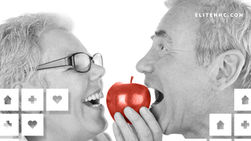What Is the Day-To-Day Routine of a Home Health Aide Like?
- Jun 27, 2019
- 3 min read

They are your lifeline. Because of them, you didn't have to say goodbye to your loved one. You didn't have to place your sick and aging parent in a nursing home or assisted living facility.
Your home health aide gives you peace of mind, knowing that your dad is happy, your mother is well taken care of at home. This frees you to meet the other important obligations in your life, from your duties at work to your responsibilities to your spouse and children.
But who are these unsung heroes who so lovingly care for the most cherished people in your life? What is a day in the life of a caregiver like? Read on to find out!
Caring for Patients
Of course, for a home health aide, everything begins and ends with the patient.
In New York, home health aides must complete a rigorous training program, as well as complete twelve hours of continued education each year. This ensures that the home health aide is equipped to deliver high quality whole-patient care.
As a home healthcare provider, the aide works to ensure not only the physical health of their patients, but also their emotional, psychological, and social well-being.
This means that with every visit, the home health aide must draw on a wide store of knowledge to make sure that his or her patient is not only healthy, but is living their best life.
Doing so means being part doctor, part psychologist, part social worker, and part friend. It means monitoring the patient for any sign of distress, such as changes in the patient's behavior or attitude.
This also means detecting physical signs of potential problems, including changes in grooming and hygiene, unexplained weight loss or gain, disruptions to the patient's usual sleep habits (sleeping more or less), or deterioration in mobility or immunity.
Fundamentally, though, good patient care comes down to the aide's ability to have compassion for the patient, the ability to anticipate, empathize with, and address the patient's needs.
Respecting the Patient's Home Life
Caregiving is about recognizing that the client is far more than just a patient. An effective home health aide is one who understands and honors the client as not just a medical case, but also as a member of a family and a community.
Though the needs of the patient are, of course, the aide's first priority, the well-being of the patient's loved ones matters too. This requires the caregiver to engage the patient's family and friends with sensitivity, kindness, and compassion, the same kind of compassion the patient deserves.
Successful home health aides are, by definition, people persons. Every day, they enter patients' homes and adapt to the environment they find there. This means being able to understand and respect the family and community dynamic in which the patient lives, including the ability to honor religious and cultural differences.
Avoiding Burnout
When it comes to being an effective care provider, the old adage that you can't take care of others unless you first take care of yourself is particularly true. Because caregivers are nurturers by nature, it can be difficult for them to take the time to practice healthy self-care.
However, studies show that being good to yourself is essential if you are going to avoid caregiver burnout.
An effective home health aide simply won't make it long in this industry if he or she doesn't schedule time every day to relax, decompress, and enjoy some down time alone or with loved ones.
The Takeaway About Home Health Aides
A typical day in the life of a home health aide may not be easy, but it is incredibly rewarding. Each and every day, these caregivers are making a profound difference in the lives of their patients and those who love them.
These are the quiet angels of the medical field, heroes whose compassionate care make our homes brighter, our families happier, our lives richer.
To learn more about the benefits of home health care, please visit our website.









































Comments